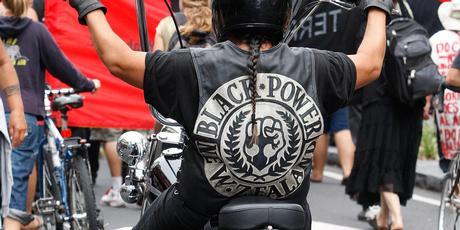Lynn at The Standard has a nothing to see here sort of post about how the Darren Hughes scandal isn’t important. True to form, he misses the fact that that the ‘Labour footsoldiers’ for whom he claims the scandal is an irrelevant distraction are the least-important players in this particular game. What matters is the public, and in that regard the views of the media and the ‘beltway creatures’ matter plenty. So while he might be right that it’s a beat-up and there’s nothing in it, that doesn’t really matter — if Labour treats this as a matter of ‘business as usual’ the results will be deservedly catastrophic.
But one thing which struck me while watching the news coverage of the Dunedin stand-ups before and after the front bench meeting today: he looks happy and confident and genuinely at ease; even effusive. As some wag on twitter said: “Phil, leave some kool-aid for the rest of the caucus!” Looks like he did, because the front bench response of solidarity also looks like it’s for real. If you watch it with the sound off, it’s the very model of a party holding a unified front.
The trouble is that what Goff is saying — that his leadership is stronger now than it was before the Hughes scandal broke — is totally barking mad. It simply doesn’t make any actual logical sense that it would be, that it could be. My instinct is that the fact the caucus and the advisers are letting him bark in this way indicates an utter dereliction of duty on the part of the advisers, and a complete lack of political nerve and sense on the part of the caucus. But, as I argued the other day, as bad as Labour is, I don’t think they’re that far gone. So maybe there’s an explanation other than mass political psychosis: maybe he’s banking on this strategy being just barking mad enough to work. This response, for all its other failings, does hint at the Machiavellian characteristic of virtù which I/S (I believe correctly) diagnosed as lacking in Phil Goff’s leadership. It is nothing if not audacious. It is certainly not a ‘business as usual’ response.
So maybe he’s hoping to catch the government on the hop by simply pretending his situation isn’t as dire as it is and hoping that the pretence is infectious. Perhaps it’s actually not pretence; perhaps he really does have that support. Perhaps he’s relying on people ignoring the waffly words and inept deeds and simply taking their cues from the appearance of functionality which Labour is trying to present.
This might not be as far-fetched as it sounds: Lynn does make a good point that people don’t pay close attention to the details; and it’s an old trick to watch political TV appearances with the sound off to get a feel for how a naïve viewer might perceive it and to look more closely at the underlying messages about the political actors and organisations which appear in them.* This sort of presentation of functionality is also a pretty good indicator of eventual success: Drew Westen documents cases where random voters could predict with reasonable accuracy the outcomes of political contests by watching brief segments of silent footage and simply observing the political actors’ nonverbal cues.**
So are they crazy like a fox? Yeah, nah, I don’t really believe it either. The hell I know. Good luck to Phil, and all of them, because they’re going to need it.
So, setting aside the conventional wisdom that Labour is just marching into an electoral abyss, what are your theories as to what they’re up to at present? Wackier the better.
L
* There’s a bit of this sort of analysis done on US political events, such as Sarah Palin’s blood libel speech — see here for example. Though not really the same thing, it’s also worth you googling “breath libel”. Scary.
** I’ve lent my copy of The Political Brain to someone, so I can’t substantiate this at the moment, sorry.


 Andrew Geddis has a
Andrew Geddis has a 